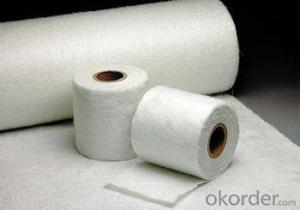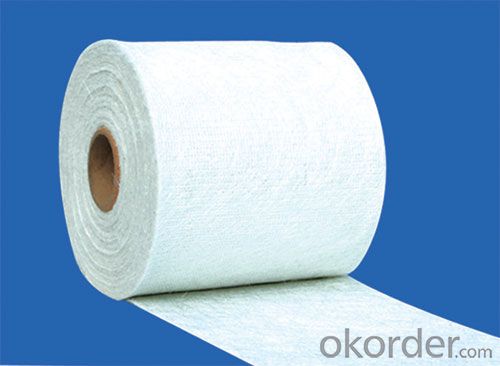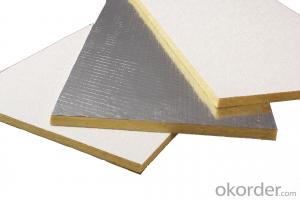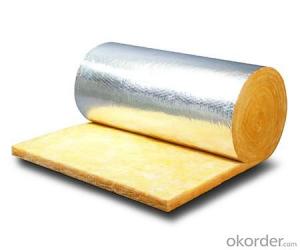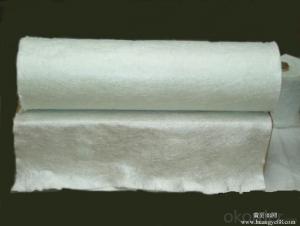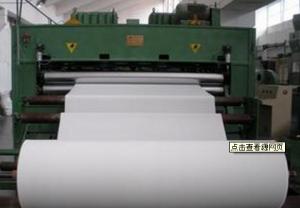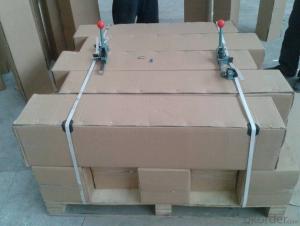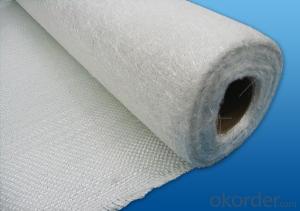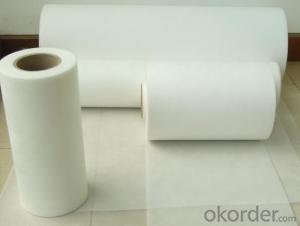Fiberglass Mat Tissue e-glass Fiber Stitched Combo Mat for FRP Usage
- Loading Port:
- Shanghai
- Payment Terms:
- TT or LC
- Min Order Qty:
- 10000 kg
- Supply Capability:
- 200000Kg Per Month kg/month
OKorder Service Pledge
OKorder Financial Service
You Might Also Like
1.Brief Introductions
(0°/90°) series mat:
Two layers of roving(550g/㎡-1250g/㎡) are aligned at 0°/90° with or without a layer of chopped strands(0g/㎡-500g/㎡)。The product has a maximum width of 100 inches.This product can be used for manufacturing boats,cases and shell of car.
E-LT(0°/90°)Biaxial products
2.Product Structure
3.Product Specifications
Product No. | Overall Density | .0° Roving Density | .90° Roving Density | Chop Density | Polyester Yarn Density |
(g/m2) | (g/m2) | (g/m2) | (g/m2) | (g/m2) | |
E-LTMC1603 | 671.74 | 303.8 | 247.96 | 101.62 | 18.36 |
E-LTMC1608 | 844.76 | 303.8 | 247.96 | 274.64 | 18.36 |
E-LTMC1808 | 903.8 | 303.8 | 307 | 274.64 | 18.36 |
E-LTMC1810 | 934.31 | 303.8 | 307 | 305.15 | 18.36 |
E-LTMC1815 | 1086.89 | 303.8 | 307 | 457.73 | 18.36 |
E-LTMC2408 | 1101.04 | 405.66 | 401.46 | 274.64 | 19.28 |
E-LTMC2415 | 1284.13 | 405.66 | 401.46 | 457.73 | 19.28 |
E-LTMC3205 | 1272.69 | 607.6 | 491.86 | 152.58 | 20.65 |
E-LTMC3205-HS | 1388.43 | 607.6 | 607.6 | 152.58 | 20.65 |
E-LTMC3208 | 1394.75 | 607.6 | 491.86 | 274.64 | 20.65 |
E-LTMC3610 | 1541 | 607.6 | 607.6 | 305.15 | 20.65 |
E-LTMC3615 | 1693.58 | 607.6 | 607.6 | 457.73 | 20.65 |
E-LTC1800 | 629.16 | 303.8 | 307 | - | 18.36 |
E-LTC2400 | 826.4 | 405.66 | 401.46 | - | 19.28 |
E-LTC3600 | 1235.85 | 607.6 | 607.6 | - | 20.65 |
E-UDL450 | 479.14 | 405.66 | 55.12 | - | 18.36 |
E-UDL500 | 490.85 | 405.66 | 66.83 | - | 18.36 |
E-UDL600 | 608.9 | 566.92 | 23.62 | - | 18.36 |
E-UDL1200 | 1207.34 | 1133.86 | 55.12 | - | 18.36 |
E-UDLM1250 | 1258.98 | 1133.86 | 55.12 | 50.00 | 20 |
E-UDLM1300 | 1338.68 | 1215.2 | 55.12 | 50.00 | 18.36 |
Special specification can be produce according to customer requirements.
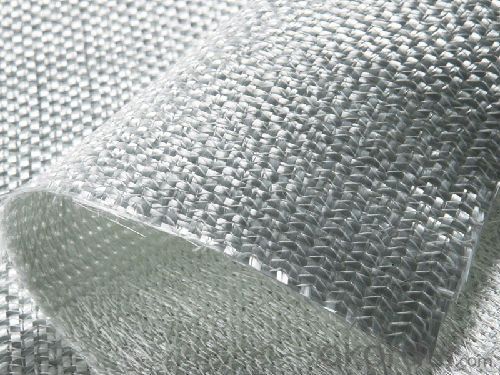
4.FAQ
Packaging:
Each roll is wound onto a paper tube which has an inside diameter of 76mm and the roll has a diameter of 275mm. The roll is wrapped up with plastic film,and then packed in a cardboard box or wrapped up with kraft paper. The rolls can be horizontally placed. For transportation, the rolls can be loaded into a cantainer directly or on pallets.
Storage:
Unless otherwise specified, It should be stored in a dry, cool and rain-proof area. It is recommended that the room temperature and humidity should be always maintained at 15℃~35℃ and 35%~65% respectively.
- Q: Can fiberglass mat tissue be used as a reinforcement in concrete?
- Indeed, fiberglass mat tissue is a feasible option for reinforcing concrete. Composed of fine, lightweight material woven from fiberglass strands, this material is widely used in construction and industrial settings due to its exceptional strength and durability. By incorporating fiberglass mat tissue as reinforcement in concrete, the tensile strength and resistance to cracks can be significantly improved. Typically, it is applied in the form of a mesh or fabric, which is embedded within the concrete during its pouring phase. The presence of fiberglass strands in the mat tissue adds extra strength and reinforcement to the concrete, thereby reducing the likelihood of cracks and enhancing the overall structural integrity. This feature proves especially advantageous in areas where the concrete is subjected to heavy loads, such as bridges, concrete slabs, or precast concrete elements. Furthermore, fiberglass mat tissue possesses corrosion-resistant properties, which renders it a suitable choice in scenarios where the concrete comes into contact with moisture or chemicals. Unlike traditional steel reinforcement, it does not rust or deteriorate over time, thereby extending the lifespan of the concrete structure. To summarize, fiberglass mat tissue serves as a practical and efficient solution for reinforcing concrete. It offers improved strength, crack resistance, and corrosion resistance, making it a favored choice in various construction projects.
- Q: How does fiberglass mat tissue perform in terms of acoustic insulation?
- When it comes to acoustic insulation, fiberglass mat tissue excels. Its fine fiber composition allows it to effectively absorb sound waves and minimize airborne noise transmission. The dense structure of the mat tissue enhances its soundproofing capabilities, making it a top choice for situations where noise control is essential. Furthermore, fiberglass mat tissue also boasts superior thermal insulation properties, further enhancing its acoustic insulation performance. In summary, this material is highly effective at reducing sound transmission and creating tranquil environments.
- Q: What is the typical width of fiberglass mat tissue rolls?
- The typical width of fiberglass mat tissue rolls is around 1 meter or 3 feet.
- Q: How is fiberglass mat tissue used in the production of composite panels?
- Due to its unique properties and versatility, fiberglass mat tissue is commonly utilized in the manufacturing of composite panels. Its role as a reinforcement material contributes to the enhancement of strength, durability, and overall performance of these panels. In the production process, a sandwich structure is typically formed by incorporating fiberglass mat tissue between layers of resin. This tissue serves as a reinforcing layer, providing added strength and stability to the panels. It effectively distributes applied stress evenly across the panel, thereby reducing the likelihood of cracks or fractures. One notable advantage of fiberglass mat tissue is its ability to enhance the impact resistance of composite panels. By absorbing and dispersing energy when subjected to external forces, it diminishes the risk of damage or breakage. This characteristic makes it a highly suitable choice for applications that necessitate high impact resistance, such as automotive parts, boat hulls, or aircraft components. Furthermore, fiberglass mat tissue exhibits excellent resistance to corrosion, making it appropriate for usage in environments with high humidity or exposure to chemicals. It acts as a protective barrier, shielding the composite panels from moisture and corrosive substances. As a result, the panels enjoy an extended lifespan and sustained performance. Moreover, fiberglass mat tissue possesses exceptional moldability, which facilitates the creation of intricate shapes and designs. It can be effortlessly molded into various forms, thus offering flexibility in the production process and enabling the fabrication of customized composite panels tailored for specific applications. In summary, fiberglass mat tissue is a vital component in the manufacturing of composite panels. It reinforces the structure, enhances impact resistance, improves corrosion resistance, and enables design flexibility. Its unique properties have made it a favored choice in industries such as construction, transportation, aerospace, and marine, where the demand for high-performance and long-lasting composite panels is prevalent.
- Q: What is the weathering resistance of fiberglass mat tissue?
- Fiberglass mat tissue is renowned for its high weathering resistance. It is composed of a blend of fiberglass strands and a binder material, such as polyester or acrylic. This combination produces a sturdy and resilient material that can withstand a range of weathering factors, such as sunlight, moisture, and temperature fluctuations. The fiberglass strands within the mat tissue offer exceptional mechanical strength, preventing the material from succumbing to external stress or pressure. This strength enables the mat tissue to endure the impact of wind, rain, and other weather elements without sustaining significant damage. Moreover, the binder material utilized during the manufacturing process of fiberglass mat tissue is often specially formulated to resist UV radiation. This UV resistance effectively shields the material from degradation and fading caused by prolonged exposure to sunlight. It also contributes to maintaining the structural integrity and strength of the mat tissue over time. Furthermore, fiberglass mat tissue exhibits resistance to moisture and water absorption. This resistance ensures that the material does not weaken or deteriorate when exposed to rain, humidity, or other sources of moisture. Consequently, the mat tissue remains intact and retains its performance properties even in wet or humid conditions. Overall, fiberglass mat tissue boasts excellent weathering resistance, making it a highly sought-after option for various applications that demand durability and longevity in outdoor environments.
- Q: What are the different reinforcement patterns available for fiberglass mat tissue?
- There are several different reinforcement patterns available for fiberglass mat tissue, each offering unique benefits and characteristics. 1. Random Chopped Strand Mat (CSM): This is a widely used reinforcement pattern in fiberglass mat tissue. It consists of randomly chopped strands of fiberglass that are bound together with a binder. CSM provides good strength and stiffness properties, making it suitable for a wide range of applications. 2. Continuous Strand Mat (CSM): This reinforcement pattern consists of continuous strands of fiberglass that are evenly distributed and bound together with a binder. Continuous strand mat offers improved strength and stiffness compared to random chopped strand mat, making it ideal for applications that require higher performance. 3. Woven Roving: Woven roving is a reinforcement pattern that consists of interwoven bundles of fiberglass yarns. It provides excellent strength and impact resistance, making it suitable for applications that require high load-bearing capabilities. 4. Multiaxial Fabrics: Multiaxial fabrics are made up of multiple layers of fiberglass fibers that are oriented in different directions (usually at 0°, 90°, and ±45° angles). This reinforcement pattern offers balanced strength properties in multiple directions, making it ideal for applications that require isotropic properties. 5. Stitch-Bonded Fabrics: Stitch-bonded fabrics are made by mechanically stitching together layers of fiberglass fibers. This reinforcement pattern provides good drapability and conformability, making it suitable for applications that require complex shapes or curved surfaces. 6. Knitted Fabrics: Knitted fabrics are made by interlocking loops of fiberglass yarns. This reinforcement pattern offers excellent flexibility and ease of handling, making it suitable for applications that require conformability and flexibility. Each reinforcement pattern has its own advantages and is used in different applications based on the specific requirements of strength, stiffness, impact resistance, flexibility, or conformability. It is important to select the appropriate reinforcement pattern based on the desired end-use properties and manufacturing process.
- Q: Can fiberglass mat tissue be used for making insulation panels?
- Indeed, insulation panels can be manufactured using fiberglass mat tissue. This lightweight and flexible material possesses remarkable thermal insulation characteristics. Typically, it is utilized as a reinforcing layer during the production process of insulation panels. By doing so, the mat tissue not only fortifies the panels, but also ensures efficient insulation against heat transfer. Moreover, fiberglass mat tissue exhibits resistance against moisture, mold, and mildew, rendering it highly suitable for insulation purposes.
- Q: Can fiberglass mat tissue be used for insulating metal buildings?
- Fiberglass mat tissue is indeed capable of insulating metal buildings. This lightweight and flexible material offers efficient thermal insulation for metal structures. It is frequently applied as a layer between the metal panels and the interior of the building, effectively hindering heat transfer and enhancing energy efficiency. Moreover, fiberglass mat tissue resists moisture and discourages the growth of mold or mildew, making it an excellent option for insulating metal buildings. Nevertheless, it is crucial to ensure correct installation in order to optimize its insulation capabilities and avoid any gaps or air leakage.
- Q: Is the Teflon gasket filled with fiberglass or graphite?
- PTFE generally used in static sealing, flange what, dynamic seal with FFKM, chemical resistance and PTFE, but with rubber elasticity
- Q: Can fiberglass mat tissue be used for repairing fiberglass canoes?
- Indeed, fiberglass canoes can be repaired using fiberglass mat tissue. This lightweight material is typically employed to reinforce fiberglass structures, and it is frequently utilized in the realm of boat repairs due to its ability to enhance strength and durability in the mended region. The mat tissue is specifically crafted to be effortlessly molded and shaped, rendering it ideal for rectifying curved surfaces like canoes. Furthermore, fiberglass mat tissue harmonizes with commonly used polyester and epoxy resins in fiberglass repairs. Consequently, it is a fitting substance for the restoration of fiberglass canoes, effectively reinstating the structural integrity of the afflicted portions.
Send your message to us
Fiberglass Mat Tissue e-glass Fiber Stitched Combo Mat for FRP Usage
- Loading Port:
- Shanghai
- Payment Terms:
- TT or LC
- Min Order Qty:
- 10000 kg
- Supply Capability:
- 200000Kg Per Month kg/month
OKorder Service Pledge
OKorder Financial Service
Similar products
Hot products
Hot Searches
Related keywords
